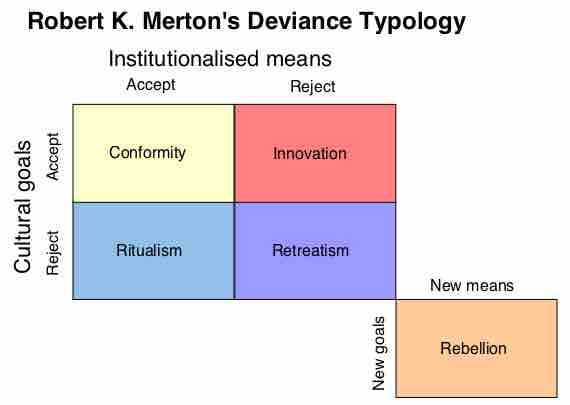Deviance, in a sociological context, describes actions or behaviors that violate informal social norms or formally-enacted rules. Among those who study social norms and their relation to deviance are sociologists, psychologists, psychiatrists, and criminologists, all of whom investigate how norms change and are enforced over time.
Deviance is often divided into two types of activities. The first, crime, is the violation of formally enacted laws and is referred to as formal deviance. Examples of formal deviance include robbery, theft, rape, murder, and assault. The second type of deviant behavior involves violations of informal social norms (norms that have not been codified into law) and is referred to as informal deviance. Examples of informal deviance include picking one's nose, belching loudly, or standing unnecessarily close to another person.
Deviance can vary dramatically across cultures. Cultural norms are relative, which makes deviant behavior relative as well. For instance, in the United States, Americans do not generally impose time-based restrictions on speech. However, in the Christ Desert Monastery, specific rules govern determine when residents can and cannot speak, and speech is banned between 7:30 pm and 4:00 am. These rules are one example of how norms vary across cultures.
Current sociological research on deviance takes many forms. For example, Dr. Karen Halnon of Pennsylvania State University studies informal deviance and focuses on what she calls "deviance vacations," whereby people of a given socioeconomic status voluntarily enter a different, often lower, social strata. One example involves heterosexual white males who become drag queens on weekends. This behavior represents a luxury, because heterosexual white males can afford to make a temporarily shift, knowing that they may subsequently return to the comforts of their prevailing socioeconomic status. Other examples include performers who may affect deviant behaviors in order to gain credibility with an aim to increasing commercial profits.

Merton's Social Strain Theory
This diagram depicts Robert K. Merton's Social Strain Theory.